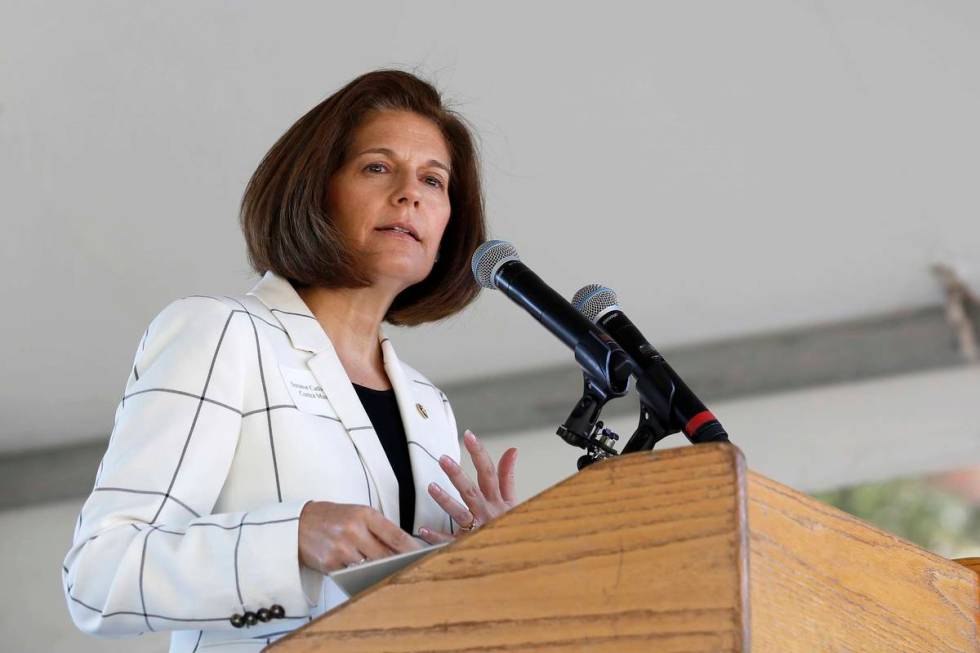More funding urged to address violence against Indigenous women

WASHINGTON — The Biden administration’s creation of a commission to focus on the crisis of violence against Indigenous women was the focus of a roundtable Thursday with tribal leaders and law enforcement from Nevada.
The federal task force consisting of officials from the Justice and Interior departments, as well as state officials, tribal leaders and law enforcement representatives, will begin to focus on protections for tribal women in the United States.
Sen. Catherine Cortez Masto, D-Nev., is working with the Biden administration to get a Nevadan named to the commission, because of the state’s tribal population and unique regional problems involving violence and Native American women.
Violence is the third-leading cause of death to Indigenous women in the U.S., according to a recent study by the Centers for Disease Control and Prevention.
More than 50 percent of Native American women have been victim of sexual assault and they are disproportionately likely to fall victim to human trafficking, according to the CDC.
“I can’t imagine any parent having to lay awake at night wondering where their daughters are,” Cortez Masto told roundtable participants.
One of the problems is the lack of data on the number of missing and murdered Indigenous women nationally, and in Nevada.
Amber Torres, chairman of the Walker River Paiute Tribe, said more awareness of the problem is needed, as well as more funding to aggressively address it.
Debra Harry, University of Nevada at Reno associate professor, said the problem stems from the dehumanization of Indigenous people over decades in Hollywood films and in the media. “Unfortunately it’s not a good one.”
Most crimes involving Indigenous people occur off tribal lands, said James Owens, chief of the Las Vegas Paiute Tribal Police Department.
He said many crimes involve runaways or teens, vulnerable to gangs, adult predators and sex traffickers. Owens said prevention programs, and better cooperation between federal, state, tribal leaders and service providers, would be a first step.
All agreed that a national and state-by-state database needs to be compiled.
The commission announced by Interior Secretary Deb Haaland was borne out of legislation passed in the House and Senate with bipartisan support and signed into law by President Donald Trump.
Cortez Masto, Sen. Lisa Murkowski, R-Alaska, and former Sen. Heidi Heidkamp, D-N.D., promoted the Senate bills that laid the groundwork for the commission’s creation.
Haaland, a Democratic lawmaker from New Mexico, was sponsor of the legislation in the House. She was tapped by Biden as Interior secretary this year.
Cortez Masto is a member of the Senate Indian Affairs Committee and the Senate Energy and Natural Resources Committee with oversight of the Interior Department.
Contact Gary Martin at gmartin@reviewjournal.com. Follow @gmartindc on Twitter.